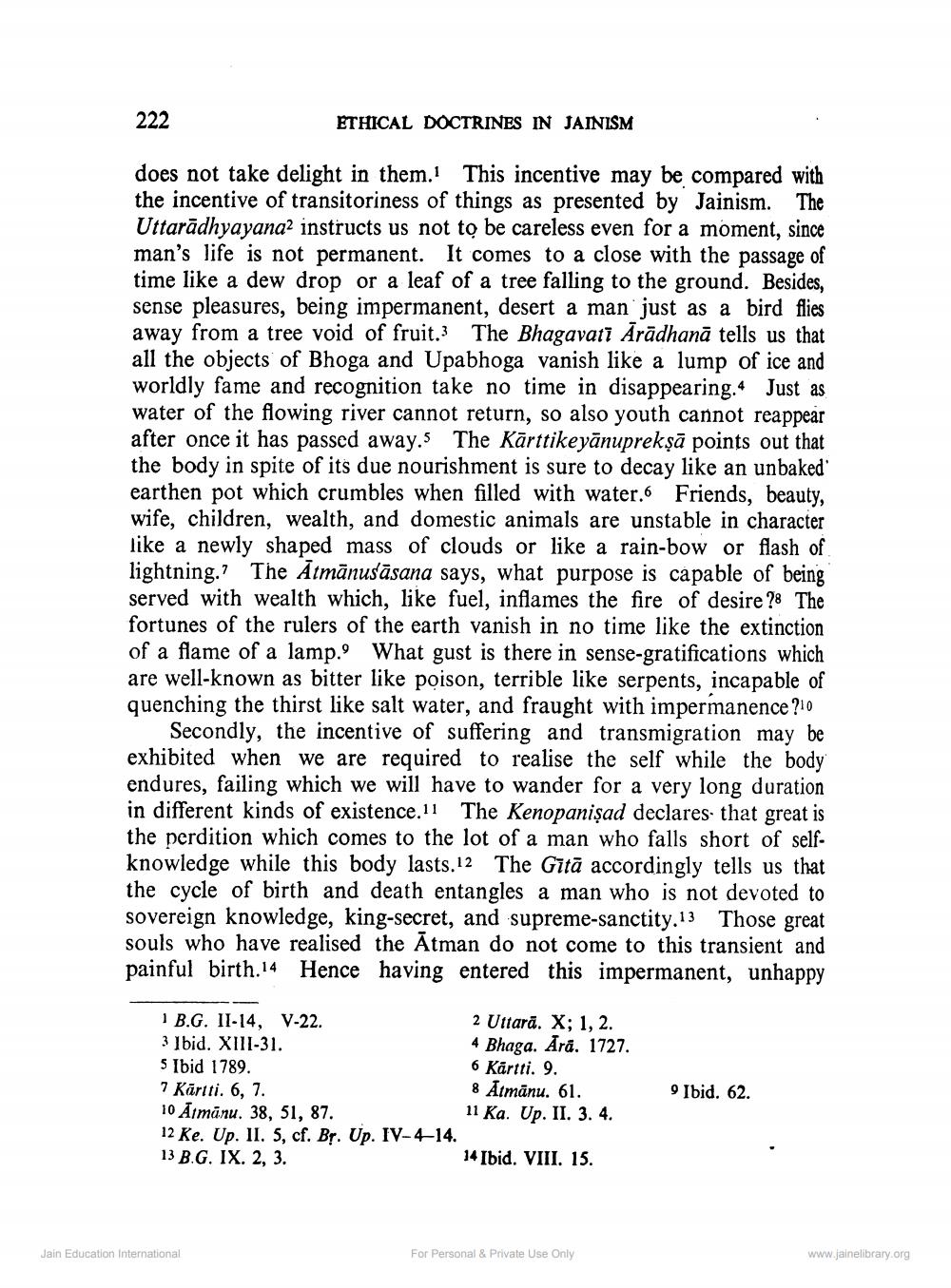________________
222
ETHICAL DOCTRINES IN JAINISM
does not take delight in them. This incentive may be compared with the incentive of transitoriness of things as presented by Jainism. The Uttarādhyayana2 instructs us not to be careless even for a moment, since man's life is not permanent. It comes to a close with the passage of time like a dew drop or a leaf of a tree falling to the ground. Besides, sense pleasures, being impermanent, desert a man just as a bird flies away from a tree void of fruit.} The Bhagavati Ārādhanā tells us that all the objects of Bhoga and Upabhoga vanish like a lump of ice and worldly fame and recognition take no time in disappearing. Just as water of the flowing river cannot return, so also youth cannot reappear after once it has passed away. The Kārttikeyānuprekşā points out that the body in spite of its due nourishment is sure to decay like an unbaked earthen pot which crumbles when filled with water.6 Friends, beauty, wife, children, wealth, and domestic animals are unstable in character like a newly shaped mass of clouds or like a rain-bow or flash of lightning.? The Atmānusāsana says, what purpose is capable of being served with wealth which, like fuel, inflames the fire of desire ?8 The fortunes of the rulers of the earth vanish in no time like the extinction of a flame of a lamp. What gust is there in sense-gratifications which are well-known as bitter like poison, terrible like serpents, incapable of quenching the thirst like salt water, and fraught with impermanence ?10
Secondly, the incentive of suffering and transmigration may be exhibited when we are required to realise the self while the body endures, failing which we will have to wander for a very long duration in different kinds of existence.11 The Kenopanişad declares that great is the perdition which comes to the lot of a man who falls short of selfknowledge while this body lasts. 12 The Gitā accordingly tells us that the cycle of birth and death entangles a man who is not devoted to sovereign knowledge, king-secret, and supreme-sanctity.13 Those great souls who have realised the Atman do not come to this transient and painful birth.14 Hence having entered this impermanent, unhappy
1 B.G. II-14, V-22.
2 Uttarā. X; 1, 2. 3 Ibid. XIII-31.
4 Bhaga. Ara. 1727. 5 Ibid 1789.
6 Kärtti. 9. 7 Kārtti. 6, 7.
8 Atmānu. 61. 10 Āmānu. 38, 51, 87.
11 Ka. Up. II. 3. 4. 12 Ke. Up. II. 5, cf. Br. Up. IV-4–14. 13 B.G. IX. 2, 3.
14 Ibid. VIII. 15.
9 Ibid. 62.
Jain Education International
For Personal & Private Use Only
www.jainelibrary.org




